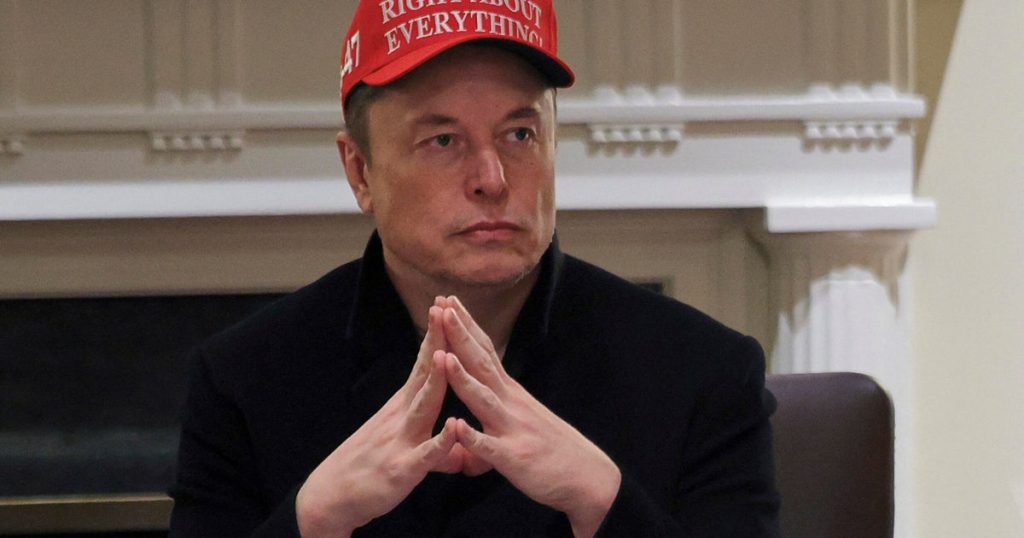Billionaire entrepreneur Elon Musk is set to continue his advisory role with President Donald Trump even after stepping back from his formal duties within the administration. Vice President JD Vance confirmed this on a recent broadcast, indicating that Musk’s influence and insight will still be valued in ongoing governmental efforts. Despite Musk’s limited tenure as a special government employee, which is capped at about 130 days, his planned departure is not viewed as an end to his contributions to governmental efficiency and reform.
| Article Subheadings |
|---|
| 1) The Role of Elon Musk in Government Efficiency |
| 2) Expected Transition Timeline |
| 3) Vance’s Remarks on Musk’s Contributions |
| 4) Government Regulations and Ethics |
| 5) Future of Administration’s Efficiency Goals |
The Role of Elon Musk in Government Efficiency
Elon Musk has been navigating a unique position in the current administration as a special government employee responsible for advancing the Department of Government Efficiency (DOGE) initiatives. His primary objective has been to streamline operations and identify wasteful spending within governmental agencies. Despite his non-traditional background in tech and engineering, Musk’s reputation for innovation and efficiency made him an attractive asset for the administration’s goals. Since his involvement, he has reportedly begun unearthing numerous grants and budget items that the White House has classified as excessive or fraudulent, showing promise in his role.
Expected Transition Timeline
As noted by Vice President Vance, Musk’s time in formal government duties is projected to last around 130 days, which is set to expire in late May or early June. During his tenure, there is anticipation that he will continue to provide strategic advice to the President and the Vice President beyond this timeframe. Both Vance and Trump emphasized that while Musk may step away from his immediate governmental role, he will nevertheless remain closely connected to the administration as a friend and adviser. This ongoing relationship is expected to facilitate continuity in efforts aimed at government reform.
Vance’s Remarks on Musk’s Contributions
In his comments to the media, Vice President Vance highlighted the substantial work that has already been accomplished under Musk’s guidance. He stated that the vast and often unregulated nature of government bureaucracy requires persistent effort and dedication to reform. Vance praised Musk for his commitment to this task, noting, “the work of Elon is not even close to done.” This perspective reflects the administration’s belief that while six months may not suffice to accomplish all objectives, progress is already visible in the efforts undertaken so far.
Government Regulations and Ethics
Musk’s designation as a special government employee comes with distinct regulations, including limitations on his tenure and certain exemptions from conflict-of-interest laws. Importantly, his financial disclosure report is not public, raising questions about oversight and transparency. Although Musk has claimed not to be compensated for his role, the implications of his extended involvement beyond the legal limits remain ambiguous. The administration’s lack of clarity on handling potential violations of these regulations could lead to broader discussions about ethics in government engagements.
Future of Administration’s Efficiency Goals
With the administration’s focus on enhancing government efficiency, Musk’s advisory role is anticipated to provide crucial insights into continuing these initiatives. The work Musk initiated is viewed as a foundational step towards a more streamlined bureaucratic process that is less burdened by inefficiencies. Even after his formal exit, his input is expected to guide future decisions and reforms within federal agencies. Vance underscored the ongoing commitment required to keep momentum and achieve long-lasting results, suggesting that collaboration with Musk may extend informally for the foreseeable future.
| No. | Key Points |
|---|---|
| 1 | Elon Musk will remain as an adviser to President Trump after his formal departure from government. |
| 2 | Musk’s tenure is bound by a 130-day limit as a special government employee. |
| 3 | The Vice President stated that Musk’s efforts have identified wasteful government spending. |
| 4 | Musk’s financial disclosures are private, and he is exempt from certain ethics rules. |
| 5 | Future efficiency reforms will continue after Musk’s exit, emphasizing long-term goals. |
Summary
The dynamic between Elon Musk and the Trump administration illustrates the complexity of integrating private-sector talent into public service roles. Musk’s influential contributions are poised to have lasting effects on the efficiency strategies adopted by the government; however, the challenges presented by regulations and ethical considerations cannot be overlooked. As Musk transitions out of his formal role, his ongoing advisory capacity will be crucial in sustaining the momentum for reforms aimed at reducing bureaucratic inefficiencies.
Frequently Asked Questions
Question: What are the primary goals of the Department of Government Efficiency?
The Department of Government Efficiency aims to streamline operations within federal agencies, eliminate wasteful spending, and improve overall government performance to better serve the public.
Question: Why is Elon Musk’s role as a special government employee significant?
Musk’s role is significant because it represents a blend of private sector innovation and public service, enabling the government to leverage his expertise in efficiency and management to address long-standing bureaucratic challenges.
Question: How does the administration plan to maintain continuity in efficiency efforts after Musk’s departure?
The administration plans to maintain continuity by keeping Musk on as an adviser, allowing him to share insights and strategies even after his formal exit as a special government employee.


